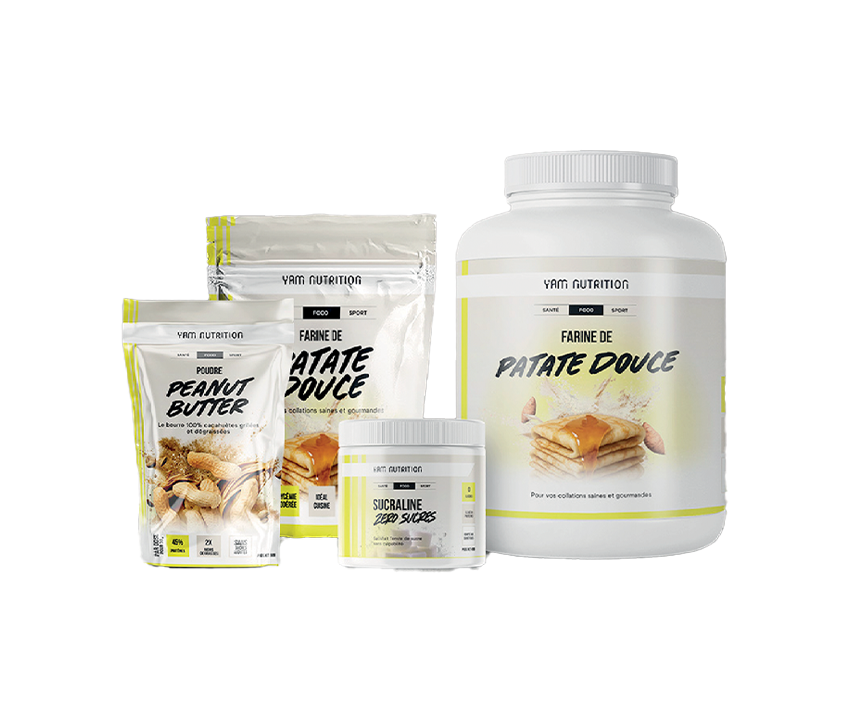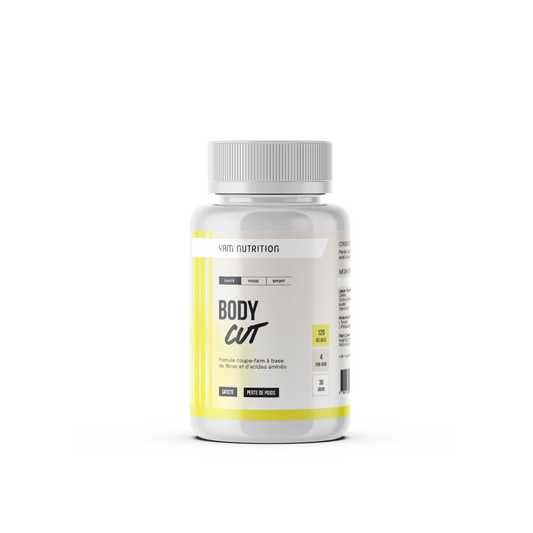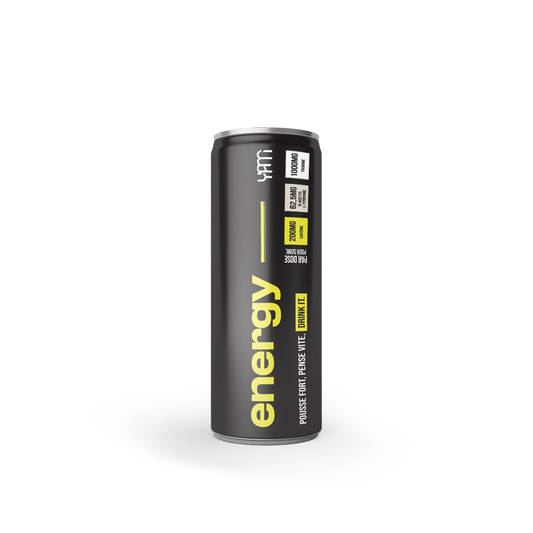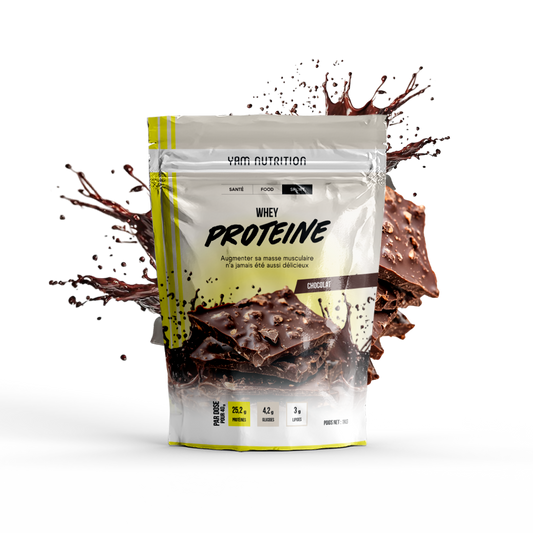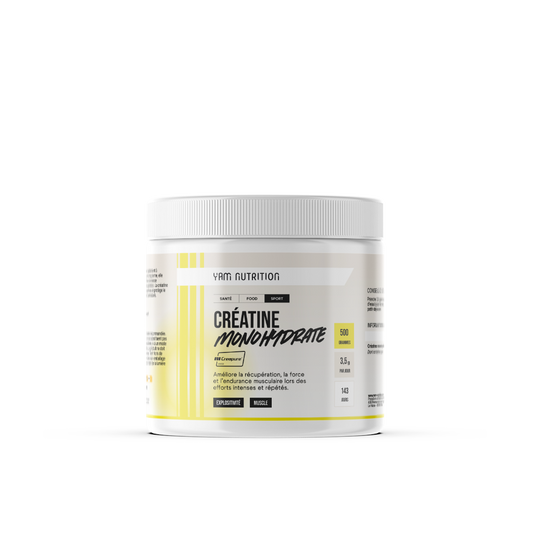Creatine for strength gain
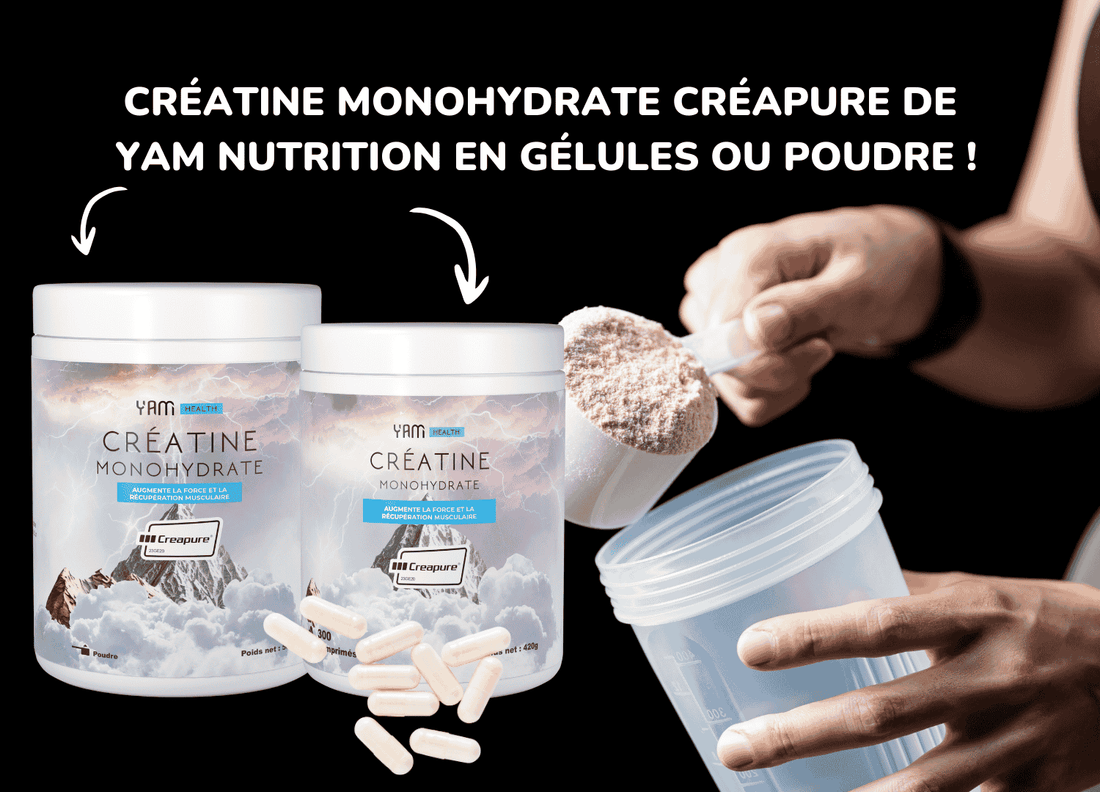
Sommaire
- What is creatine monohydrate?
- What is the benefit of taking creatine monohydrate?
- Adenosine triphosphate releases one of its phosphates to make energy
- How does creatine monohydrate help increase muscle strength?
- YAM Nutrition has chosen the German quality label Creapure for the consistent quality of its creatine monohydrate
- Should I take it before or after training to aid recovery?
With the practice of strength sports such as bodybuilding, creatine is still one of the most used dietary supplements by bodybuilding athletes. An ergogenic validated by more than 700 studies carried out on humans, creatine monohydrate leaves no doubt about its effectiveness and the athletic performance it allows to obtain during training. By definition, an ergogenic is a substance that allows an improvement in physical performance or cognitive.
For nearly 30 years, creatine monohydrate has remained the most effective supplement for endurance athletes such as bodybuilding, powerlifting, and weightlifting. Its effectiveness on strength and hypertrophy has been validated by hundreds of clinical studies. But what exactly is its influence on strength physical and the muscle growth ?
Caffeine without the crash thanks to NewCaff-75™ technology An appetite suppressant to help you stick to your diet without giving in by regulating your appetite. The energy drink 2.5x more caffeinated than average Building muscle mass has never been so delicious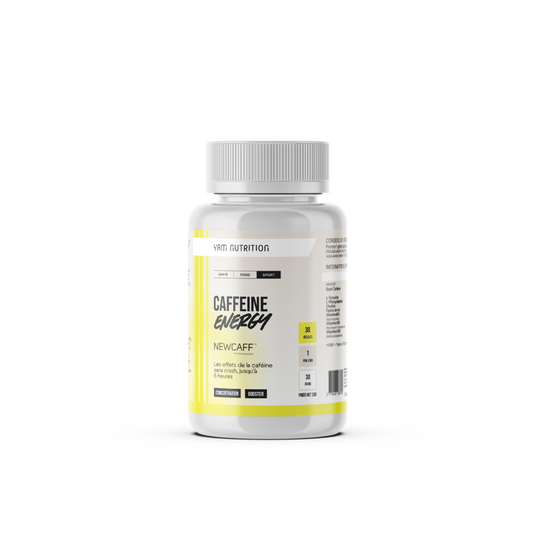
Caffeine Energy
29,90 €
Sale price
25,40 €
Body Cut Appetite Suppressant
Sale price
29,90 €
YAM Energy Drink
Sale price
From 3,00 €
Whey Protein
Sale price
From 37,90 €
What is creatine monohydrate?
Creatine monohydrate is a salt of creatine . This is the most common form of this molecule as a dietary supplement . It is also this form that has been the most studied by scientific and clinical research. Creatine is a phosphate donor composed of three amino acids, Glycine , Arginine and Methionine. Through enzymes, an amine group from arginine binds to glycine while methionine donates a methyl group. From there, creatine is formed with the help of specific enzymes. This is how the liver synthesizes it.
For an adult male of about 70 kg, let's say that his muscle mass contains about 120 grams of Creatine . Creatine recycles ATP continuously during exercise. At rest, ATP gives up one of its phosphates to phosphocreatine to maintain its ADP form. When metabolism accelerates, the process reverses to synthesize adenosine triphosphate very quickly and supply the muscles with energy.
What is the benefit of taking creatine monohydrate?
In fact, researchers have found that for most individuals, cellular reserves in phosphocreatine could be slightly increased. Indeed, our muscle cells contain 70% creatine phosphate or phosphocreatine, the rest 30% free creatine. This is where supplementation plays its role and it only takes 3 to 5 grams of creatine monohydrate per day to make a difference. Indeed, this difference helps optimize the recycling of ATP ( adenosine triphosphate ) with phosphocreatine. A supplement helps increase your muscle stores of phosphocreatine, which will stimulate energy release.
Adenosine triphosphate releases one of its phosphates to make energy
As you know, ATP releases a phosphate , which produces energy, but it becomes ineffective with only two phosphates or ADP. Creatine phosphate then gives up one of its own via a kinase enzyme. ADP then returns to its initial form of ATP and can once again release energy. This incessant recycling of this pro-energy molecule in our muscle cells allows energy to be released almost instantly. It is also the basis of muscle strength and power themselves.
How does creatine monohydrate help increase muscle strength?
In fact, creatine monohydrate can increase muscle strength both directly and indirectly, at least that's what clinical studies have shown. By increasing the storage of creatine phosphate ( or phosphocreatine ), instant energy and muscle strength will be slightly increased in the athlete directly. As a result, the turnover Optimizing phosphocreatine with ATP allows you to perform 2 or 3 more repetitions per exercise .
The stress imposed on the muscle fibers is then also greater, which then induces a muscle hypertrophy slightly greater myofibrillar fibers. Indirectly, an increase in strength is produced. The strength gained ultimately allows you to take heavier loads and then stimulate a stronger hypertrophy. As you understand, this direct and indirect increase in strength leads to significant gains in lean muscle mass in strength athletes. In endurance sports, taking creatine has proven its benefits for post-exercise recovery. It would therefore be a very versatile nutritional supplement.
YAM Nutrition has chosen the German quality label Creapure for the consistent quality of its creatine monohydrate
With Yam Nutrition , we have chosen the German Creapure label. This is a quality label that attests to the purity of the product sold, without traces of creatinine or potentially harmful manufacturing agents such as those found in low-quality creatine monohydrates, generally imported from Asia. Creapure is recognized worldwide as a premium brand of creatine monohydrate. Creapure is manufactured by the German company Alzchem, a quality label distributed worldwide. We offer you Creapure in 1000 mg capsules for its convenience and ease of use, wherever you are.
Should I take it before or after training to aid recovery?
Most scientific studies conducted on creatine intake remain on disagreement as to the ideal time to take it. Some studies say that taking creatine before training is preferable, others say that it should be taken after. If you take it after, it will promote recovery by facilitating the replenishment of cellular phosphocreatine. Taken before exercise, creatine will add to your reserves by facilitating the release of energy , with a little more strength in training. Just remember that it is enough to 3 to 5 grams of creatine monohydrate per day to saturate, in theory, your phosphocreatine stores. Scientific studies are quite mixed but before or after training, it is certainly the best ergogenic for strength and bodybuilding practitioners. You can take it on an empty stomach to avoid its creatinine degradation or with a sugary drink, HMB or alpha lipoic acid to increase its absorption. The breakdown of creatine with a meal, a protein shake or sugars is particularly negligible.
In any case, take creatine before and after bodybuilding will therefore probably be easier to consider.
Eric MALLET
Spécialiste en Nutrition Sportive
